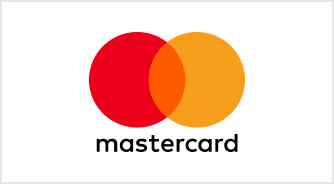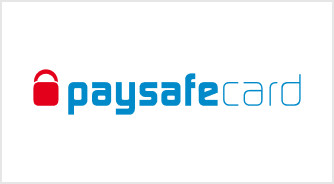How to Play Omaha Poker
If you are on this page, there is a good chance you have played Texas Hold’em or other variations of Poker and heard something about Omaha Poker. If you ever wondered how to play Omaha Poker, you’ve come to the right place! We have put together an expert guide just for you to show you the differences between Omaha and Texas Hold’em. Learn to play Omaha Poker, pick up a few tips on the way, and get yourself ready to have fun at online casinos in South Africa.
Best Omaha Poker Sites for South African Players
1st Deposit Bonus
$1,000
Casino Highlights
- Generous welcome bonus
- Fast withdrawal times
- Trusted online poker since 2003
Payment Methods






Casinos Software
What is Omaha Poker?
Omaha Poker is a version of Hold’em. Its formal name is Omaha Hold’em. And like other Hold’em variations, it is a game of gathering and using information to shape the path the hand takes.
In Omaha Poker, you are dealt four hole cards face down for only you to see. During the hand, as many as five face-up community cards may be dealt; everybody can see these cards.
The goal of the game is to make the best five-card hand using exactly two of your hole cards and three community cards. As with any poker game, betting plays an integral role. You can bet to bluff your way to victory, to build the pot if you have a great hand, or to set up a later move by getting your opponents to think what you want them to think.
Rules of Omaha Poker
There are a lot of cards dealt in Omaha Poker, so it can look like a bit much at first, but it is quite a simple game that anyone can learn. While it is a favourite game of professional poker players, you don’t have to be a pro to play. The increased activity in Omaha Poker makes the game a blast to play for even most casual players. Let’s look at how to play Omaha Poker, step by step.
Omaha Poker Rules
-
1
Deal – Every player at the table is dealt four, face-down hole cards and the players in the small blind and big blind pay their forced bets
-
2
Pre-flop – Action starts with the player seated to the left of the big blind and moves clockwise around the table. Each player makes their betting decision and when all players have acted, the hand moves on to the flop if there are at least two players still in the hand.
-
3
Flop – The dealer lays out three cards face-up. All players can use these to make the best five-card poker hand. Another round of betting begins among whichever players that have not already folded, starting with the players in the blinds.
-
4
Turn – The dealer puts out one more community card face-up to go along with the flop. As always, another betting round ensues.
-
5
River – The fifth and final community card is dealt face up and the final round of betting takes place.
-
6
Showdown – If at least two players remain, they turn over their cards and the player who has the best five-card hand using exactly two of their hole cards and three community cards wins the pot. If players have the hands of the same strength, the pot is split evenly.
Betting in Omaha Poker
If you are familiar with Texas Hold’em, you know how betting works in Omaha Poker. If you need a quick rundown on how to play Omaha Poker from a betting perspective, we’ve provided a quick guide to help you navigate the process. One note before we start: the most common version of Omaha is Pot-Limit, meaning the most one can bet is the total value of the pot.
Before the cards are dealt
Blinds – The blinds are bets that two players are required to make before anything else happens. The reason for the blinds is to create a pot for everyone to have an incentive to play. If there was no pot, there would be much less action after the cards are dealt, as there would be no reason to risk further betting. The big blind is twice as much as the small blind. The players in the big blind and small blind act last and second-last, respectively, pre-flop. They are the first players to act post-flop.
Ante – This is another forced bet, paid by all the players at the table, serving the same purpose as the blinds. In cash games, antes are not usually seen in low stakes environments; they are much more common at higher stakes tables. In tournaments, antes usually kick in after a few blind levels, also serving to speed up play. With antes, players can’t afford to play too conservatively.
After the cards are dealt
Call – This is a bet that is equal to the largest bet that has been made in the betting round. Calling ensures that you stay in the hand.
Raise – A raise is a bet that not only matches the largest bet in that round but increases it. It is a way to put pressure on the other players and/or build the pot. Anyone who wants to stay in the hand must call the raise.
Open – To make the first bet in a betting round.
Check – A check, which is announced verbally or by knocking your hand on the table, is an option to not bet anything provided nobody has bet more in that round than you have. Pre-flop, the player in the big blind will be able to check if nobody raises. After the flop, everyone can check until somebody makes a bet.
Fold – If you decide you do not want to continue in the hand, you can fold and give up your hole cards and any right to the pot. If everyone but one person folds in a betting round, the hand is automatically over and the last person with cards wins the pot.
Bet Pot – Also called simply “Pot,” this is a bet that is exactly the size of the pot.
All-in – A bet in which you commit all your chips. If you are playing Pot-Limit Omaha, the pot will have to be equal to or greater than your remaining chips to go all-in.
Omaha Poker Hands
Perhaps the most important part of learning how to play Omaha Poker is knowing the hand rankings, which hand beats which hand. Below are the different hands you can make in Omaha Poker, listed from worst to best. Keep in mind that Ace has the highest value but can also be the low end of an A-2-3-4-5 straight.
Omaha Hand Values
-
1
High Card – A completely uncoordinated hand that fits none of the descriptions below. (ex: 3-4-6-9-K)
-
2
Pair – Two cards of the same rank (ex: 5-5-6-9-Q)
-
3
Two Pair – Two different pairs of cards (ex: 2-2-8-8-9)
-
4
Straight – Five cards of consecutive rank, not all of the same suit (ex: 5-6-7-8-9)
-
5
Flush – Five cards of the same suit, but not also five cards of consecutive rank (ex: 3-5-8-9-A, all clubs)
-
6
Full House – Three of a Kind and a Pair together (ex: 6-6-J-J-J)
-
7
Four of a Kind – Four cards of the same rank (ex: 2-2-2-2-7)
-
8
Straight Flush – Five cards of consecutive rank, also of the same suit (ex: A-2-3-4-5, all diamonds)
-
9
Royal Flush – Ten, Jack, Queen, King, Ace, all of the same suit (ex: T-J-Q-K-A, all hearts)
Tips for Playing Omaha
It’s one thing to know how to play Omaha Poker, but it’s another thing to know how to play it well. Like any game, practise makes perfect, but here are a few tips to put you on the right track.
Patience
Because you get four hole cards in Omaha, it can be tempting to play every hand. After all, four hole cards open up a lot of possibilities! But for that exact reason, you will usually need a stronger hand to win in Omaha than in Texas Hold’em. It is important to be patient with your hand selection. Look for pairs, high connectors, double flush cards, and combinations thereof. Give yourself a few options to win.
Use all four cards
This relates to the above. You can only use two hole cards to make your hand, but that only applies at showdown. At the outset of the hand, you want all four hole cards to be able to work. If you go to the flop knowing that only three of your cards are realistically useful, you are putting yourself at a disadvantage. For example, A-K-Q-J are four hole cards that give you all sorts of possibilities, especially if the Ace is suited with one of the other cards. A-K-Q-6, though, while still not terrible, is not nearly as good. That 6 will serve no purpose unless you get a lucky flop.
Chase the best
If you are drawing to a flush or a straight, try to draw to the nuts. That may sound obvious, but again, remember that winning hands tend to be stronger in Omaha. If you can make a flush or straight, there’s a decent chance that somebody else was able to make a better one if you don’t have the nuts.
Omaha vs. Texas Hold’em
Omaha and Texas Hold’em are almost the same game. If you know how to play Omaha Poker, you pretty much know how to play Texas Hold’em, and vice-versa. The most important and obvious difference is that you are dealt four hole cards in Omaha compared to two in Texas Hold’em, and must use exactly two of them and exactly three community cards to make your five-card hand. In Texas Hold’em, you can use any combination of your hole cards and community cards. As far as the structure of the game goes, that is the only difference.
The flow and feel of the two games are also a bit different, though. Because you get four hole cards in Omaha Poker, you will have more options for possible hands. Because of this, Omaha games tend to be more action-packed than Texas Hold’em games, as more players have more possibilities to make hands. Some people prefer Omaha for that reason, while some people prefer Texas Hold’em for the same reason. It’s all a matter of preference.
Additionally, because there are more possibilities to make stronger hands, the winning hand in an Omaha Poker game is stronger on average than in a Texas Hold’em game. A single pair rarely wins in Omaha.
Play Omaha at Online Casinos in South Africa
As you can see, Omaha is an easy game to learn, and if you have already played Texas Hold’em, you are 90% of the way to knowing how to play Omaha Poker. We’ve given you the basics and provided a few brief tips to help you navigate this fun poker variation. And always remember, while it is almost the same as Texas Hold’em, it is not Texas Hold’em, and there are different ways to approach a hand. Sign up for one of our recommended sites that feature Omaha Poker games and test your luck today!
FAQs
How do you play Omaha Poker?
In Omaha Poker, you are dealt four hole cards face down. The goal is to make the best five-card poker hand using just two of your hole cards and three of the five face-up community cards.
What is a good hand in Omaha Poker?
Winning hands in Omaha Poker are, on average, stronger than in Texas Hold’em, so aim for a straight or better. Settling for anything less than two pair is asking for trouble.
What’s the difference between Omaha and Texas Holdem?
There is one difference in the rules of the two games. In Texas Hold’em, you are dealt two hole cards and can make a five-card hand with any combination of your hole cards and community cards. In Omaha Poker, you are dealt four hole cards and must use exactly two hole cards and three community cards.
Can you use all four cards in Omaha?
No. You can only use two hole cards and three community cards.
Can you earn real money playing Omaha poker?
Yes. Like any form of poker, it takes practice to get good and there will be ups and downs, but if you learn the game and make the right decisions, you can win real money in the long run.

